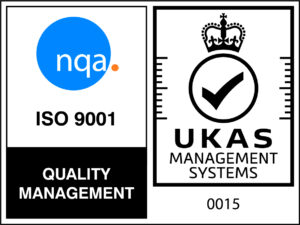Creating tomorrow’s astronauts
A blog by our Education and Innovation Officer Dr Mason Robbins
The UK space industry is one of the fastest-growing sectors of the UK economy. Already, space technologies are responsible for over £360bn per annum of UK economic activity, supporting over 45,000 jobs and worth more than £16.4bn per year. In response, Space Scotland is targeting a £4bn share of the global space market and hoping to create 20,000 jobs in the sector by 2030.
This is an enormous opportunity that is on track to only grow. One of the crucial elements in building a thriving and accessible space sector in the UK, as identified in the 2021 National Space Strategy, is upskilling future generations, and investing in education.
Space and education
With such an exciting industry unfolding in the UK, SaxaVord Spaceport will play a key role in its development. Our mission is to operate at the industry’s intersection, where space meets community and education. My role as Education and Innovation Officer is to expedite this through our detailed Education Strategy, formed alongside the Shetland Space Education and Employment Pipeline Working Group (SSEEP). In 2022 alone, we completed an average of more than three educational initiatives each month, providing more than 160 hours of activities and reaching over 14,000 participants worldwide. [ZRB1]
Positioning the UK as a viable location for a career in space has been one of our main ambitions from the outset. Working in conjunction with SSEEP and our other partners (including Skills Development Scotland, Shetland Island Council and the UK Space Agency), we will deliver and boost STEAM skills development. Our ambition is for SaxaVord to become a space learning hub, a location of opportunity for those aged 1-100 who want to work in space.
Delivering Education
Our approach to education prioritises working with the local community, bolstering Shetland’s and the UK’s position in the global industry, supporting Space Scotland’s ambitions and upskilling future generations.
We want space to be a viable and accessible career option for anyone and everyone. This is what ultimately underpins all our objectives around education, a philosophy that ‘space is for all’. We want to offer young people in Shetland opportunities right here, expanding their view of where they can work and reducing the number of skilled workers leaving to pursue careers in larger cities.
Although our remote location is one of our greatest opportunities, it isn’t without its challenges. Unst, where our launch site is based, is very isolated. Geographically, we’re closer to the Arctic Circle than Edinburgh, closer to Norway than to mainland Scotland. It can often take extra effort and time to get to schools even a short distance away. However, technology has helped us deliver education even at times of logistical difficulty. Using the expanse of online tools available, we can offer both digital and hybrid events, alongside in-person ones.
Shetland and beyond
Although community-focused, our strategy understands the global situation too. Last year’s Space Week was an opportunity to present SaxaVord as a global educational hub. We participated as guest speakers on panels and webinars hosted by the likes of Inspired24, Uplift Aerospace and the Open University. With thousands of students, parents and educators involved in the network of in-person and online initiatives, it helped us to connect the national and global space communities, establishing ourselves as key educational players.
We’re currently working with Los Alamos National Laboratories (LANL), a national security research laboratory based in the American Southwest. Having identified our success in engaging the local community and schools in Shetland, LANL reached out to us to support their efforts to connect to the Native American communities that surround their research centres. We see fantastic collaborations such as this as a key method of increasing our international recognition in global space education.
What does the future of education look like at SaxaVord?
We will continue to develop our education strategy in line with the evolving needs of the space industry. As working with partners is one of our primary delivery mechanisms, we’re aiming to achieve participation from at least half of our client base, with educational involvement written into future contacts. In conjunction with, and supporting our regional education goals, we will also hope to increase our local school partnerships by 10% annually.
We have recently expanded our education team to include a graduate hire who supports our early years projects. This is one of two local graduates we currently employ. We hope to expand this scheme annually, including developing overseas roles. Growing our team will strengthen our expanding presence as leaders in space education. Already, demand is growing in the wider Shetland area and Scotland. We want to be in a position where SaxaVord can support this at the forefront.
Likewise, we are looking to expand our university ambassador programme to onboard an ambassador from a non-STEAM background. Currently, we work with Edinburgh and Strathclyde universities on our ambassador scheme. We want to ensure that students at this level of education, from every academic discipline, are exposed to space as a career option.
Spreading its wings
Historically, jobs in space have been London and south-east centric. No less than 48% of jobs in 2020. But this is changing. The space industry is spreading its wings. Scotland is fast becoming a space opportunity hub, with hundreds of jobs developing in the North East alone. Once our site is complete, we will host up to 30 vertical launches per year, opening up a whole host of opportunities. The UK Space Agency’s strategy wants to level up the space economy. With Space Scotland seeking a large portion of the jobs, SaxaVord will support this by bringing opportunities to Scotland, to Shetland.
Ultimately, we hope to help shape a skilled workforce by engaging our local schools and communities and those further afield. We want to lessen barriers to education while iterating and responding to the evolving needs of the space sector as they develop. We are uniquely positioned to support the UK Government, Space Scotland, our partners and the global industry. Investing in education, at both a local and global level, is a direct action to develop the sector. Space should be accessible; it should be exciting, and it should be for everyone. The sector will only grow by bringing more people in and encouraging future generations.
[ZRB1]Stats taken from Mason’s STEM Learning dashboard over the past year
Signup to the SaxaVoice Newsletter
Site Office
Sub-Orbital House, Saxa Domestic Site, Haroldswick, Unst, Shetland, ZE2 9TJ, Scotland
Registered Office
Orbital House, 15 Castle Road, Grantown On Spey,
PH26 3HN

